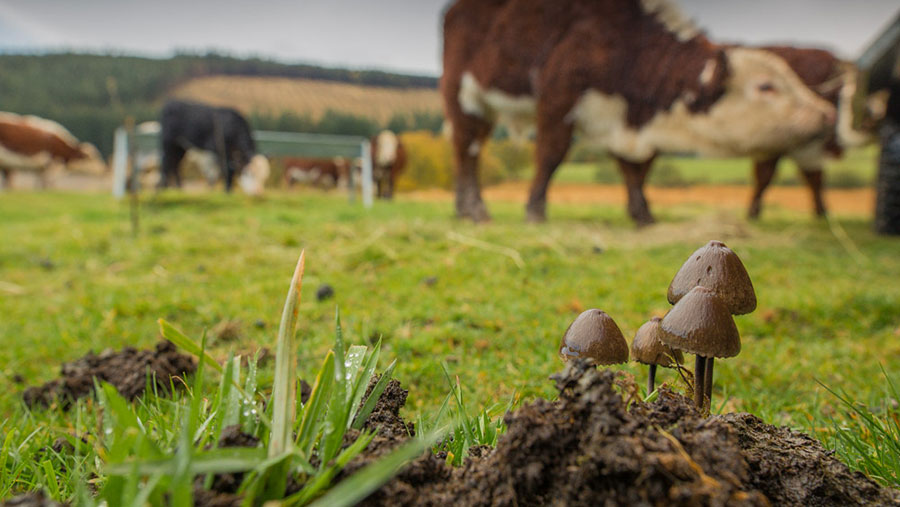Advertiser content
How nature-friendly farming can improve business resilience
Provided by
The Nature Friendly Farming Network (NFFN) is a farmer-led organisation that supports farmers who want to restore the balance between farming and nature.
Here’s how we support our farmer members:
- We promote knowledge sharing between farmers through training, case studies and resources that help farmers secure food production, protect biodiversity and build resilience against climate shocks.
- We influence policies to ensure fairer returns for farmers who protect nature. Many farmers are already playing an incredible role in helping wildlife flourish on their land, and we believe that they should be fully supported and rewarded for this.
- We connect farmers across the UK who are passionate about wildlife and sustainable farming, sharing positive, solution-driven stories. Together, we build a movement.
Become a member - it’s free. Our network is also open to the public and other organisations.
Join us today: nffn.org.uk/register
It is becoming clear that farming in partnership with the environment is key to increasing the long-term resilience of food production.
Increasingly, evidence demonstrates that agriculture can be improved by moving away from input dependency and embracing nature-based solutions, which also bring animal health, carbon and biodiversity benefits.
Protecting the soil through reduced tillage and cover cropping; agroforestry; increasing natural soil fertility; nitrogen-fixing legumes; rotations; better crop residue management, and livestock integration with cropping systems can all play a role.
Together these kinds of measures have multiple resilience benefits:
Reduced fertiliser use
By adopting nature-friendly agricultural practices, like those listed above, soil health can be revived. Instead of being an inert medium to receive artificial nutrients, soil provides natural fertility for crop growth.
Recent data from over 30 long-term experiments comprising 25,000 yield records found that overall, using various regenerative practices – including incorporating organic matter – could substitute for synthetic N fertiliser without compromising yields.1
Natural pest control
The presence of areas of nature alongside cropped land can provide habitats for predators that naturally keep levels of crop pests low, reducing pesticide expenditure and crop losses.
In one study, installing wild buffer strips alongside bean crops led to a yield increase of 25-35%, partly provided by increased predation of pea and bean weevil by spiders, beetles, predatory flies and parasitoids.2
Resilience to extreme weather events
Farming for soil health can increase the capacity of soil to absorb and store water, improve agriculture’s ability to resist drought, and reduce runoff and waterlogging during heavy rainfall.
Research by King’s College London suggests that an average UK farm of 86ha could store an additional 67 megalitres of water if managed regeneratively.3
Planting trees around fields can shield crops and animals, minimising soil erosion4 and reducing lambing losses by up to 30%.5
Reduced nutrient loss
Poor soil structure, bare soils and a lack of natural habitats around fields can lead to high levels of nutrient runoff and leaching. Lost nutrients represent a financial cost to farmers and a serious environmental hazard.
Planting cover crops can reduce the amount of nitrogen leaving a field by 50% and reduce phosphorus load in waterways by up to 90%.6
Meanwhile, planting trees between field edges and rivers can reduce nutrient losses by 20-80%.7
Reduced energy use
Practices such as reduced tillage and reduced phosphate use mean fewer passes over fields using heavy machinery, saving time, labour and fuel.
A 2016 study at the Allerton Project showed that the diesel cost per hectare of one-pass drilling was only 26% of the diesel cost per hectare of AHDB conventional ploughing.8
This can represent significant cost savings across a whole farm and other significant benefits like reduced soil compaction.
Reduced on-farm bills
Taken together, regenerative practices represent a potentially significant reduction in input costs for farmers.
The Groundswell Benchmarking Group, a group of 15 farmers practicing regenerative agriculture, found that variable costs were 24% lower, whilst labour and machinery costs were 30% lower9.
Another case study of a 1,400-ha Norfolk estate reported a £40,000 saving on diesel and a 40% reduction in fixed costs, from £562/ha to £330/ha in just one year.10
Improved animal health
Anthelmintic plants such as chicory, sainfoin and birdsfoot trefoil have been shown to improve nutrition, control parasitic worms and enhance natural immunity in ruminants which is an effective tool to combat the increasing issue of drug resistance in farm animals.11
Financial viability
Nature-friendly farming achieves greater profitability and financial resilience for farmers, primarily through reducing costs.12
Recent research in the UK on regenerative farming techniques over a five-year farm rotation on different soil types found yields between 3-9% lower but net profit up by 5-18%, alongside increased earthworm count and bird sightings, and decreased soil GHG emissions and carbon footprint.13
A 2019 study on livestock farming in marginal areas in the UK found that reducing output and stock numbers to levels that could be supported by grazing without any additional artificial fertiliser could also increase profitability.14
The Groundswell group also reported that net margins were maintained despite yield declines.
Support in transitioning to nature-friendly farming
At the Nature Friendly Farming Network, we unite farmers who are on the journey towards a whole farm approach that works with nature.
Join as a free member and get involved in our events, trainings and workshops to learn and share knowledge in transitioning to a more profitable and resilient farming future.
Read our latest report, Rethink Food: A Plan for Action (PDF), which calls on food and agricultural policymakers to take action to support farmers as part of a fairer food system.
- https://pure.sruc.ac.uk/en/publications/long-term-evidence-for-ecological-intensification-as-a-pathway-to-sustainable-agriculture
- https://royalsocietypublishing.org/doi/10.1098/rspb.2015.1740
- https://www.ciwem.org/news/are-sponge-soils-the-key-to-future-uk-climate-resilience
- https://www.woodlandtrust.org.uk/media/1815/benefits-of-trees-on-arable-farms.pdf
- https://www.gov.uk/government/publications/its-time-to-branch-out-how-woodland-creation-benefits-your-farm
- https://www.sare.org/publications/cover-crops/ecosystem-services/cover-crops-at-work-keeping-nutrients-out-of-waterways/
- https://www.gov.uk/government/publications/its-time-to-branch-out-how-woodland-creation-benefits-your-farm
- https://www.agricology.co.uk/sites/default/files/Economic (PDF)
- https://groundswellag.com/groundswell-benchmarking-group/
- fwi.co.uk/arable/land-preparation/soils/how-regenerative-farming-cut-fixed-costs-by-40-in-first-year
- https://www.agricology.co.uk/resources/introducing-legumeplus-project-sainfoin-birdsfoot-trefoil-red-clover
- https://peerj.com/articles/4428/
- https://www.syngenta.co.uk/news/stewardship/conservation-ag-research-shows-sustainable-route
- https://www.agricology.co.uk/resources/less-more-improving-profitability-and-natural-environment-hill-and-other-marginal-farming

